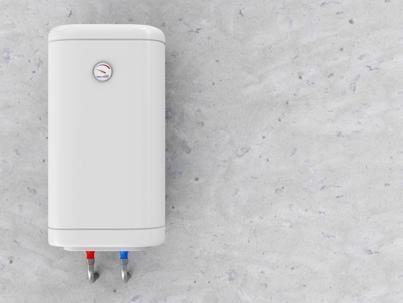If you have heard exciting things about tankless water heaters, you may wonder how they differ from your current heating system. The major distinction between tankless and standard heaters is that the former heats water on demand. This style of operation offers many benefits for homeowners.
Energy Savings
Many buyers of tankless water heaters want to save money on utility bills. Water heating is a top energy user in any typical home, especially in residences with many occupants. A storage tank model continually turns on and off even when not in use because it loses heat to its surroundings. If the tank stores water for too long, it reheats the same water to compensate for these standby energy losses.
While you can count on hot water when needed with a storage tank heater, it expends a lot of energy, resulting in inflated utility bills. A tankless water model avoids standby energy losses that increase your utility bills by heating water on demand.
The amount of energy savings depends on the quantity of water your household uses. Tankless waters are remarkably energy-efficient in homes that don't use too much hot water daily — that is, 41 gallons or less. If residents use over 80 gallons daily, a tankless heater will be 8–14 percent more efficient than traditional heating systems.
Instant Hot Water
Many people who use a storage unit complain of waiting for hot water since its capacity determines the amount of hot water available to your family at once. The heater takes time to heat cold water entering the tank, and the wait inconveniences occupants of a busy household.
A tankless heater features electric coils or a gas-fired burner that heats water on demand. Although tankless water heaters have a maximum flow rate, you can count on an endless hot water supply if your home's water consumption stays below this rate.
Storage Savings
Tankless water heaters are fitting for space management as conventional models are bulky and average about 60 inches by 24 inches. If your heater needs a closet, consider how much space you can save with a tankless model that is not much bigger than a shoe box.
The average tankless unit is 27 inches long and 18 inches wide, which a plumber easily mounts on the wall. This arrangement frees up space for furniture, clothing, or other household items. Replacing your storage unit also provides many design opportunities if you plan a house remodel.
Longer Lifespan
Tankless water heaters may have a higher price tag than conventional models, but they have double the life expectancy. Storage water heaters last 8 to 12 years, while you can expect to get more than 20 years out of a quality tankless water heater.
Tank-style heaters have a shorter lifespan because sediment accumulates over time and accelerates corrosion. Also, you need to replace the heater's anode rod every few years as it is prone to rust. A tankless water heater needs less maintenance and stays free of corrosion since it doesn't hold water. Its longer lifespan is also good for the environment because it reduces the number of water heaters ending up in landfills.
Longer Warranties
Tankless water heaters have longer warranties to match their long life spans. So you don't have to pay for repairs or replacements out of pocket if anything goes wrong with your model. Another advantage of a tankless water heater is that you can replace individual parts instead of the whole system. With a tank-style heater, you must replace the entire model if problems arise after the warranty period.
The water heater market has many options for homeowners who want efficient and long-lasting heating systems. Tankless water heaters stand out because they last for over 20 years, save space and energy bills, and supply hot water on demand. Contact us at PlumbRite for expert guidance on water heater selection.
Additional Service Areas
Omaha, NE
La Vista, NE
Bellevue, NE


